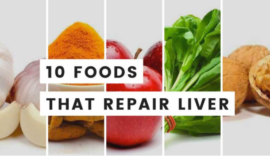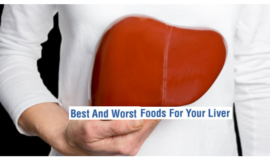When we plan a diet , there is lots of myths about the nutrition , some may are common and we get other bases less myth from people also. If we try to know the right or wrong about these myths you will be surprised , because most of them are baseless, with out any scientific evidence.
Here are some nutrition al myths , you must know before plan a diet;
High fat foods are unhealthy
Though this antiquated and incorrect theory is slowly being put to rest, many people still fear high fat foods and follow low fat diets in the hopes that cutting their fat intake will benefit their overall health.
Dietary fat is essential for optimal health. Plus, low fat diets have been linked to a greater risk of health issues, including metabolic syndrome, and may lead to an increase in insulin resistance and triglyceride levels, which are known risk factors for heart disease.
What’s more, diets that are higher in fat have been proven just as effective — or even more so — than low fat diets when it comes to encouraging weight loss.
Protein is bad for you
Carbs and fats often take the blame for various health issues, but the third macronutrient isn’t always spared by the media. Protein has often been accused of harming bones and kidneys.
Bone loss
More protein in the diet has been linked to more calcium in the urine. Two reasons have been suggested to explain this phenomenon:
- Your body draws from its calcium stores (in bones) to buffer the acid load caused by dietary protein. This has led researchers to suggest that higher protein intake could cause greater bone loss.
- Most studies that looked at protein intake and calcium excretion list dairy products as a protein source, so higher urinary calcium could simply be the result of higher calcium intake.
Therefore, looking only at calcium excretion wasn’t enough. Subsequent studies showed that dietary protein promotes dietary-calcium absorption and that high protein intake “promotes bone growth and retards bone loss (whereas) low-protein diet is associated with higher risk of hip fractures.”
Kidney damage
Other studies determined that high protein diets increased glomerular filtration rate (GFR), a marker for waste filtration in the kidneys. It was argued that increased GFR was a sign that undue stress was put on the kidneys, but later research has shown that kidney damage does not occur as a result of diets high in protein.
In conclusion, randomized trials thus far have not shown high-protein diets to harm the bones or kidneys of otherwise healthy adults.
Breakfast is the most important meal of the day
While it was once thought that eating breakfast was one of the most important factors in setting yourself up for a healthy day, research has shown that this might not be the case for most adults. Moreover, partaking in intermittent fasting, during which breakfast is either skipped or consumed later in the day, has been linked to a plethora of benefits, including improved blood sugar control and reductions in inflammatory markers.
However, intermittent fasting can also be accomplished by consuming a regular breakfast then having your last meal earlier in the evening to maintain a fasting window of 14–16 hours.
Keep in mind that this does not apply to growing children and teens or those with increased nutrient needs, such as pregnant women and those with certain health conditions, as skipping meals may lead to negative health effects in these populations.
On the other hand, some evidence shows that eating breakfast and consuming more calories earlier in the day rather than at night, coupled with reduced meal frequency, may benefit health by reducing inflammation and body weight.
Fats are bad for you
For many decades, the traditional way to lose weight has been to subject oneself to a low-fat diet, yet current evidence suggests that, given the same caloric deficit and protein intake, low-fat and low-carb diets produce similar weight losses. Moreover, while low-fat diets are not inherently unhealthy, shunning all fat from your diet can be dangerous, since your body needs to consume at least some omega-3 and omega-6 fatty acids.
Trans fat is the only kind of fat that has been shown to be categorically detrimental to health. Naturally occurring trans fat and industrially produced trans fat seem to have a similar effect on blood lipids, but you don’t need to worry about the minute amounts of trans fat naturally occurring in whole foods (notably dairy products). The trans fat you need to shun is a byproduct of partially hydrogenated oils: this type of trans fat was once a common ingredient of processed foods — so common that trans fat consumption was linked to more than half a million coronary heart disease (CHD) deaths worldwide.
You need to eat small, frequent meals for optimal health
Eating small, frequent meals regularly throughout the day is a method used by many people to boost metabolism and weight loss. However, if you are healthy, the frequency of your meals does not matter as long as you meet your energy needs.
That said, those with certain medical conditions, such as diabetes, coronary artery disease, and irritable bowel syndrome (IBS), as well as those who are pregnant, may benefit from eating more frequent meals.
Egg yolks are bad for you
Foods high in cholesterol can increase LDL cholesterol in most people, but to a fairly small extent on average. Moreover, some of the micronutrients and other bioactive compounds in egg yolks could interfere with cholesterol absorption, and many studies have failed to find an increase in cholesterol in egg eaters.
More to the point, while a review associated higher consumption of cholesterol or eggs with higher risk of cardiovascular disease (CVD) and all-cause mortality in a dose-response manner, clinical trials found no association between eggs and CVD, except in some people who “hyper-respond” to dietary cholesterol.
Macronutrient ratio matters more than diet quality
Although macro coaches may lead you to believe that the ratio of macronutrients in your diet is all that matters when it comes to weight loss and overall health, this narrow-minded take on nutrition is missing the bigger picture. While tweaking macro ratios can benefit health in many ways, the most important factor in any diet is the quality of the foods you eat.
Though it may be possible to lose weight by eating nothing but highly processed foods and protein shakes, focusing solely on macronutrients discounts how eating certain foods can either increase or decrease metabolic health, disease risk, lifespan, and vitality.
Salt is bad for you
Some myths contain a grain of truth. Studies have associated excess salt with hypertension (high blood pressure), kidney damage, and an increased risk of cognitive decline.
But salt (sodium) is an essential mineral; its consumption is critical to your health. The problem is when you consume too much sodium and too little potassium.
Another issue is the source of all that salt. People who consume a lot of salt tend to consume a lot of foods that are generally unhealthy. That makes it hard to tease apart sodium’s effects from overall dietary effects. Except for individuals with salt-sensitive hypertension, the evidence in support of low sodium intakes is less conclusive than most people would imagine. As it stands, both very high and very low intakes are associated with cardiovascular disease.
White potatoes are unhealthy
Often labeled as “unhealthy” by those in the nutrition world, white potatoes are restricted by many people wanting to lose weight or improve their overall health. While eating too much of any food — including white potatoes — can lead to weight gain, these starchy tubers are highly nutritious and can be included as part of a healthy diet.
White potatoes are an excellent source of many nutrients, including potassium, vitamin C, and fiber.
Plus, they’re more filling than other carb sources like rice and pasta and can help you feel more satisfied after meals. Just remember to enjoy potatoes baked or roasted, not fried.
Red meat is good or bad
Absolute statements are why we have so many nutrition myths. Cancer is particularly difficult to discuss in absolutes. After all, almost everything we eat has the potential to be involved in cancer development. Yet, red meat has been fingered as a likely culprit.
Some compounds — such as polyaromatic hydrocarbons (PAHs), found in smoked meats — have been found to damage the genome, and damaging the genome is the first step to potential cancer. Current evidence suggests that processed red meats, particularly those that are more charred during cooking, can pose a greater cancer risk for people with poor diets and lifestyles.
But if you moderate your red meat intake, exercise regularly, eat your fruits and veggies, consume adequate fiber, don’t smoke, and drink only in moderation, red meat’s effect on cancer isn’t something to worry too much about.
Very low calorie diet is the best way to lose weight
While reducing calorie intake can indeed boost weight loss, cutting calories too low can lead to metabolic adaptations and long-term health consequences. Though going on a very low calorie diet will likely promote rapid weight loss in the short term, long-term adherence to very low calorie diets leads to a reduction in metabolic rate, increased feelings of hunger, and alterations in fullness hormones.
This is why studies have shown that low calorie dieters rarely succeed in keeping excess weight off in the long term.
Bread will make you fat
Bread has taken a beating over the past few years (especially white bread). Bread will not inherently make you fat, but it tends to be dense in calories and therefore easy to overeat. And of course, most people will eat bread with other high-calorie foods, such as butter, peanut butter, jam, or honey. This can lead to a caloric surplus and thus to weight gain over time. Moreover, while bread can be part of a healthful diet, a bread-centric diet can crowd out more nutrient-rich foods, notably fruits and vegetables.
Also, some people choose to avoid bread entirely because of its gluten content. Gluten critics claim that any amount of gluten (a protein, ironically, not a carb) is a danger to all. While “all” is an exaggeration, it is indeed possible to suffer from non-celiac gluten sensitivity.
Calcium supplements are necessary for bone health
Many people are told to pop calcium supplements to keep their skeletal system healthy. However, current research has shown that supplementing with calcium may do more harm than good.
For example, some studies have linked calcium supplements to an increased risk of heart disease. Additionally, research shows that they don’t reduce the risk of fracture or osteoporosiS.
If you’re concerned about your calcium intake, it’s best to focus on dietary sources of calcium like full fat yogurt, sardines, beans, and seeds.





